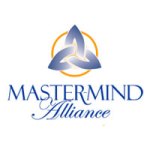Would you sooner watch TV than clean out the garage, go shopping rather than organize the closet, study the market and never invest, research communities across the United States and never buy a property, or constantly check out rates but never buy the life insurance you need?
Well, you might be in good company with famous people such as Leonardo di Vinci, Samuel Taylor Coleridge, and Douglas Adams.
Do you know that while Leonardo could allegedly paint with one hand and simultaneously write with the other, it took him 20 years to finish the Mona Lisa; that his Last Supper was only completed when the sponsor threatened to cut off support? Leonardo’s procrastination caused him much grief in later life. Despite all his fantastic contributions to the world he had so many half-finished projects he appealed to God “Tell me if anything ever was done. Tell me if anything was done.”
Samuel Taylor Coleridge was one of the most infamous procrastinators of all time. Many of us learned about “The Rime of The Ancient Mariner” and “Kubla Khan” in school but few realize that “Kubla Khan” was never really finished. Coleridge himself described his procrastination as “a deep and wide disease of my moral nature – love of liberty and pleasure of spontaneity express but not explain the fact.” He left most of his works in fragments, brilliant fragments but incomplete, and consequently doomed to obscurity.
Douglas Adams was said to have raised procrastination to an art form. The Hitchhiker’s Guide to the Galaxy might never have been produced had a good friend not camped out on Adams’ doorstep and subsequently locked him in a room. Adams used everything from making cups of tea, taking baths, and spending days in bed to avoid writing. Sadly his procrastination robbed us of a tenth book – The Salmon of Doubt – which he had promised for 10 years but which was left without a final draft upon his death in 2001.
So, how can you beat the pervasive procrastination?
One of the most important things you can do for yourself is to get organized.
Make lists, take a class in organization, or purchase an organizer. Do whatever works for you but keep it simple. If your organization system is too complicated, it will become just another task to avoid. Here are a few tips from a recent Master-Mind Alliance meeting:
- Create a “To Do” list then break it down into –
- a “Must Do” list, and
- a “Do Today” list
that way you can continue adding new items to your To Do list and still prioritize by deadline.
- Schedule your time into blocks. If there are specific times in the day/week when you’re scheduled to perform or complete certain tasks then it’s easier to fit them in. Create a “model week” and represent it on a quilt chart with different colors for the different tasks. That way you’ll always know what you need to be doing at a particular time.
- Eat that Frog. Brian Tracy talks about this in his book of the same name. If the worst thing you had to do each day was eat a frog, when would be the best time to do that? At the end of the day when you’d spent all day thinking or worrying about it, or first thing so the rest of the day was relatively stress-free?
Another technique that helps is to “Chunk Down” or bite off only what you can chew.
Did you ever notice how large shopping malls are broken up into lots of twists and turns, levels, and side corridors? There’s a very good reason for this. If malls were laid out straight we could see just how far we are really walking. If we actually knew how far apart stores are, we would probably leave the mall, get in our cars and drive from store to store. By having our view broken up into small chunks, we feel as if it’s a shorter distance. This same psychological trick can be used to help overcome procrastination. Break large projects up into smaller tasks. For example, doing your taxes can be broken up into: pick up necessary forms, get records organized, complete forms, double check forms for accuracy and mail. It is much less burdensome if you take a small bite at a time.
Schedule Reward Time
As you work through your tasks, you may find your mind drifting off to all the activities you’d rather be doing. You will find it much easier to concentrate on your work if you know that you have scheduled time for these activities. For instance tell yourself, “I’ll work hard today accomplishing my goals because tomorrow is Saturday and I am scheduled time to go fishing.” Knowing that you have finished your tasks will also make it easier to relax and enjoy your leisure time.
The Best Laid Plans…
This all being said, if something can go wrong it will. Allow yourself more than adequate time to finish each task. If you complete it faster than you’ve allowed, you’ll be ahead of schedule. This will be a psychological boost to you. At the very least, you’ll avoid the rush to finish. Also, if later, you do get behind schedule you can simply shift everything forward until you catch up. The key is to leave room for flexibility.
So what if you mess up and are unable to finish everything on time? Get creative. Request extensions on deadlines, get help from friends and relatives, delegate tasks to others, drop non-essential items from your schedule, or hire outside help.
Once you become conscious of accomplishing tasks in a reasonable time you’ll quickly break that habit of procrastination, reduce the pressure on yourself and begin to live a more fulfilled life.





